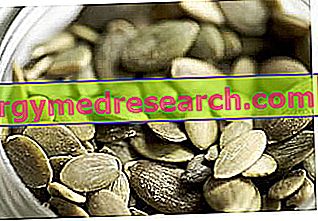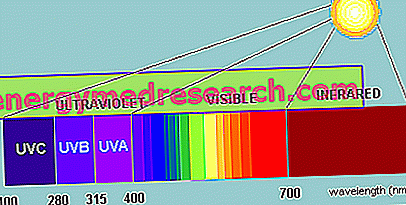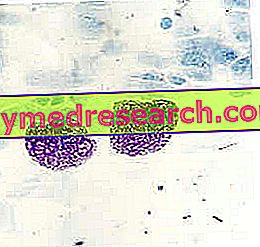What is that
Pumpkin seed oil is obtained by cold pressing of the seeds of the homonymous plant ( Cucurbita pepo L.).

Nutritional characteristics
The chemical composition of pumpkin seed oil varies according to the varieties and botanical species from which the seeds are obtained, whose nutritional characteristics are also influenced by the cultivation techniques and environmental peculiarities of the territory. In the table opposite, by way of illustration, the acidic composition recorded in a study conducted on twelve varieties of Curcubita maxima is reported : there is a clear predominance of unsaturated fatty acids (73.1-80.5%), especially in terms of oleic and linoleic acid; the levels of linolenic acid (<1%) are particularly low, so that the now ubiquitous claim: "rich in omega three" cannot certainly be attributed to pumpkin seed oil.
| No: unsaturations | Name Fatty acid | Percentage range |
| (14: 0) | Myristic | 0:09 to 0:27 |
| (16: 0) | palmitic | 12.6-18.4 |
| (16: 1) | palmitoleic | 0:12 to 0:52 |
| (18: 0) | Stearic | 5.1-8.5 |
| (18: 1) | Oleic | 17.0-39.5 |
| (18: 2) | Linoleic | 18.1-62.8 |
| (18: 3) | linolenic | 0.34-0.82 |
| (20: 0) | arachidonic | 0:26 to 1:12 |
| (20: 1) | gadoleic | 0-0.17 |
| (22: 0) | behenic | 0:12 to 0:58 |
As for saturated fatty acids, those with the highest cholesterogenic action - myristic and palmitic - range from 12.8 to 18.7%.
The vitamin E content is significant (27.1 - 75.1 mcg of alpha-tocopherol per gram of oil; 74.9 - 492.8 mcg of gamma-tocopherol per gram of oil; 35.3 - 1109.7 mcg of delta-tocopherol per gram of oil).
According to the results of this study, from a nutritional point of view, pumpkin seed oil embodies the typical characteristics of other, more common and less expensive vegetable oils, such as soy and peanut oils. Therefore, there are no particular reasons to prefer it to these products, except for the particular characteristics reported in the following paragraph. However, the richness in oleic and linolenic acid, and the good content in vitamin E, give the pumpkin seed oil a mild lipid-lowering and preventive properties against atherosclerotic diseases, probably enhanced by the richness of phytosterols.
Phytotherapy properties
Certainly more interesting are the phytotherapeutic properties ascribed to pumpkin seed oil, deriving from its richness in betasterols structurally similar to androgens and estrogens; being lipophilic compounds, these substances present in pumpkin seeds are found in excellent quantities even in the oil obtained from them. These substances have proved useful in lowering cholesterol levels, improving post-menopausal estrogen deficiency symptoms, and alleviating the symptoms of prostatic hypertrophy, an effect that appears to be partly related to the ability to inhibit the conversion of testosterone into dihydrotestosterone, and partly to the obstacle offered towards the link between androgen receptors and dihydrotestorone.
In a randomized, double-blind, placebo pilot study, 35 women entering menopause for natural or iatrogenic reasons (surgery for benign diseases) were given 2 grams of pumpkin seed oil a day for a period of 12 weeks. Compared to the placebo-treated control group, the administration of pumpkin seed oil ensured a significant increase in HDL values associated with a drop in blood pressure; furthermore, the compilation of a questionnaire concerning the perception of the most common post-menopausal disorders allowed us to observe a significant improvement in estrogen deficiency symptoms, especially in terms of reduction of hot flashes, headaches and joint pains.
A recent study evaluated the hypotensive activity of pumpkin seed oil by comparing it with that of amlodipine (a drug with anti-hypertensive action), demonstrating - in rats - the cardioprotective and hypotensive effect of oil, presumably due to an increased synthesis of nitric oxide,
In a randomized, double-blind, placebo-controlled clinical trial conducted on 47 Korean patients, 53.3 years old, suffering from benign prostatic hyperplasia, the effectiveness of pumpkin seed oil administered for 12 months alone was tested (320 mg / day) or in association with Serenoa repens oil (320 mg / day of one + 320 mg / day of the other); the results were compared with those of the placebo group (320 mg of sweet potato starch) or with the serenoa oil alone (320 mg / day). None of the proposed treatments guaranteed a significant reduction in prostate volume; serum PSA values decreased in the group taking the two oils together, while quality of life improved after 6 months. The two herbalists taken separately guaranteed an improvement in prostate symptoms expressed through the IPSS (International Prostatic Symptom Score) over three months, while the maximum urinary flow improved after six months in the group treated with pumpkin seed oil, and after 12 months in the group treated with serenoa oil.
Recalling that the research should be interpreted with due caution as long as the results are not confirmed in an unequivocal manner by several studies, pumpkin seed oil can represent a valid natural alternative or at least a complement to the pharmacological treatments undertaken for the treatment of hypercholesterolemia, hypertension, symptoms of prostatic hypertrophy and disorders related to menopause. Consult your doctor.
Bibliography
J Agric Food Chem. 2007 May 16; 55 (10): 4005-13. Epub 2007 Apr 18.
Oil and tocopherol content and composition of pumpkin seed oil in 12 cultivars.
Stevenson DG, Eller FJ, Wang L, Jane JL, Wang T, Inglett GE. Nutr Res Pract. 2009 Winter; 3 (4): 323-7. Epub 2009 Dec 31.Effects of pumpkin seed oil and saw palmetto oil in Korean men with symptomatic benign prostatic hyperplasia.
Hong H, Kim CS, Maeng S. Climacteric.
2011 Oct; 14 (5): 558-64. Epub 2011 May 5.
Improvement in HDL cholesterol in postmenopausal women supplemented with pumpkin seed oil: pilot study.
Gossell-Williams M, Hyde C, Hunter T, Simms-Stewart D, Fletcher H, McGrowder D, Walters CA. J Med Food. 2011 Nov 14. [Epub ahead of print]Antihypertensive and Cardioprotective Effects of Pumpkin Seed Oil.
El-Mosallamy AE, Sleem AA, Abdel-Salam OM, Shaffie N, Kenawy SA.


